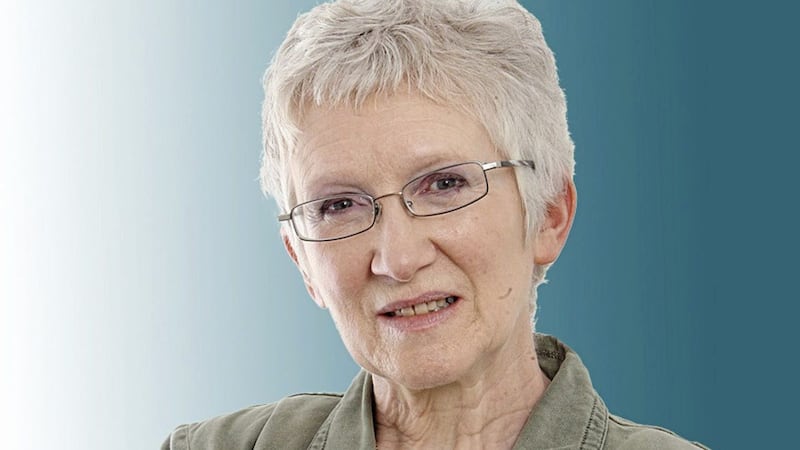What makes the rudeness of Donald Trump unstoppable in public is awareness that he has no inhibitions. Cross him and you risk a confrontation he will win because he cannot be embarrassed.
Like the late Ian Paisley, when you think of it. (Small wonder one of Trump’s few open fans here is the surviving Ian Paisley.)
Who holds anyone’s arm above the elbow if they scarcely know them and they’re being watched? Perhaps a policeman or a prison officer bringing an accused person into court, maybe a clumsy adult child keeping a feeble parent upright. But this was Trump grasping the UK’s prime minister while hollering back to a journalist, Theresa May plodding onwards with head down. Variations on the theme were the fingers tugging hers as he surged ahead up the steps of the enormous Blenheim Palace, the hand on top of hers but grasping tightly.
It was bullying in plain sight. She could of course have lifted the hand off or tried to, tugged her arm away. She let it happen, and no wonder. This is a stiff and awkward woman. The cameras caught her frozen, dumbfounded and also gazing at the big bully with what looked like admiration but was more likely disbelief. Free of Boris for this? To rebel in public against Trump’s overblown, almost unbelievable rudeness is clearly beyond most of those around him. When not reading her script May studied her feet.
Most people are polite in public. Flicking imaginary fluff off the Macron jacket, moving Montenegro’s prime minister aside to be in front for a photocall; the handling stuff no doubt makes women in particular queasy but plain ignorance, as we would call it, is the default Trump stance. If May had kiboshed even one of those demonstrations of his power to suppress others, she risked a scene. A similar calculation put Paisley visually and audibly in control of almost every media appearance he ever made, as of many political confrontations.
In his last years a British government made him a lord. By contrast his church and his party, his creatures as he thought them, turned him out to grass. His reaction with bitter add-ons from Baroness Bannside was vintage stuff; insults, mockery, use and abuse of preacher language. Nigel Dodds was ‘the mighty Dodds.’ Unlike Peter Robinson, the Paisleys had a happy marriage. The church’s offending new leadership lacked ‘the ear of God’. It was a late life version of the style, when he first got his feet under him, that scarified mainstream Presbyterianism and what was then mainstream unionism. It worked for decades on air and on screens.
A Paisley press conference was one thing, where the worst reaction to an onslaught was slavish tittering from other journalists at his unfunny jabs. Live broadcasting of exchanges suited him perfectly. Questioners held back or skipped a follow-up. Nobody knew what he would say back to them and broadcasting organisations disliked their reporters becoming the story. He was also a great man for the fibs, another Trump speciality. In the worst years of the Troubles he deployed slander liberally against the inconvenient questioner; ‘no surprise from an IRA-man like you’. He never withdrew his Westminster slurs on Eugene Reavey and others. The technique was much copied, including by some unionists who called him an extremist.
Consider what Paisley left us. Sentimental revision suggests he made his chuckling deal with Martin McGuinness when he thought, sweet old man, of his grandchildren. Cooler assessment sees that his DUP had finally shouldered aside the once mighty Ulster Unionist party, his deepest ambition, and that he had no Ian Paisley behind him guldering ‘traitors’. Who would say him nay? Why not rake in the compliments from an ‘establishment’ he had now joined?
Paisley’s legacy is not the sum total of what’s wrong with unionism now but he bears a sizeable responsibility, he who took no responsibility ever. He taught them that, ingrained it in them; Robinson, Arlene Foster. His bullying fed David Trimble’s insecurity and internal conflict, undermined Trimble’s willingness to sell Good Friday as a good deal for unionism rather than an unreadable, muffled ‘Belfast Agreement’.
Paisley’s very size mattered, like Trump’s. Remember how the big man grabbed the hand of the smaller one to swagger through Portadown, after a Drumcree deal agreed then denied?
The Trump Supreme Court appointments will reshape America for decades and a second term is likely enough now. He has already coarsened and lowered the tone and language of politics. It happened here too.








